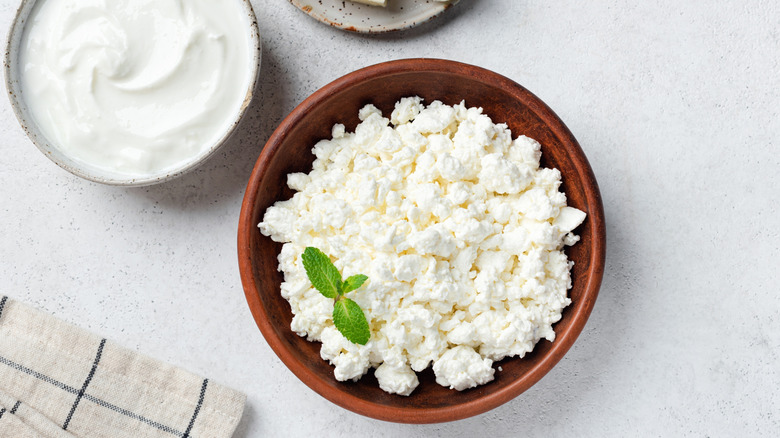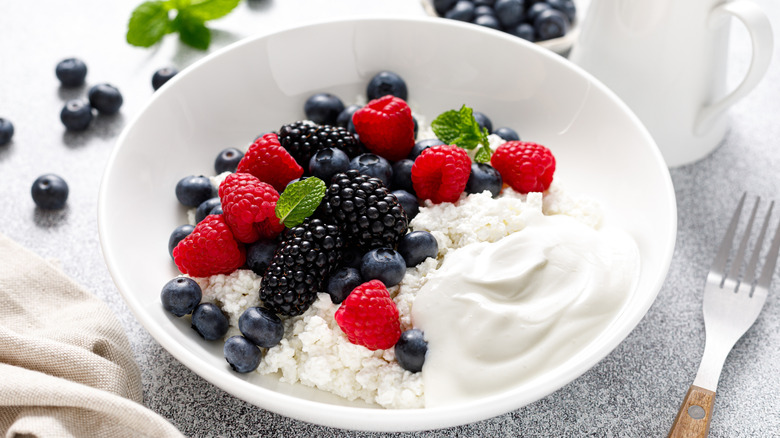Cottage Cheese Vs Greek Yogurt: Which Ingredient Has More Protein?
Cottage cheese and Greek yogurt are constant refrigerator staples. They're creamy, tangy, and delicious, and easy to upgrade with different ingredients. They're also quite healthy. Both cottage cheese and Greek yogurt come in whole-, reduced-, and non-fat varieties, and are often considered "good fats" because they're rich in other nutrients. But one of the most important of their benefits is protein. Protein helps build muscle mass and strength, supports bone health, can lower blood pressure, boosts our metabolisms, and helps us stay full longer and avoid empty snacking. If you're looking to up your protein intake, these dairy products are a great way to do that — but which has more protein?
To figure this out, we can first look at some of the best-known cottage cheese brands. Trader Joe's has 12 grams of protein, Daisy's has 13, Friendship Dairies' has 14, and Breakstone's has 12. These are all based on a ½ cup serving size of 4% milkfat cheeses, though there's not much protein variation between fat levels. Then, looking at some of the most popular Greek yogurt brands, we have Dannon Light & Fit with 12 grams of protein, Oikos Pro with 20 to 25, Chobani with 14 to 20, and Fage with 15 – all per 5.3-ounce cups. Greek yogurt varies in fats as well as flavors, but its proteins are consistent — and it's only sometimes a winner over cottage cheese.
Cottage cheese and Greek yogurt almost even out in protein
Cottage cheese and Greek yogurt are pretty neck and neck in a protein contest. Reading the protein amounts brand by brand, it seems like yogurt is a slight winner. But the plot twist is that yogurt also tends to have a larger serving size. Compare a ½ cup, or 4 ounces, of Daisy's cottage cheese with 13 grams of protein to a 5.3-ounce cup of Fage with 15. The former has 3.25 grams of protein per ounce, the latter a little over 2.75. The difference is minute, but there: Greek yogurt might be able to print higher protein levels, but you're consuming more of it in a serving size. Add an ounce of cottage cheese to your bowl, and you could even things out. Of course, the major exception is that Greek yogurt brands often offer higher-protein lines, such as Oikos Pro and Chobani High Protein. That's how cups can reach up to 25 grams, a feat above cottage cheese.
Because comparing the protein counts of cottage cheese and Greek yogurt requires some splitting hairs, you can rest assured you're getting about an equal amount of protein from whichever one is your favorite. Cottage cheese is a good source of calcium and vitamin B12; Greek yogurt is, too, and also features probiotics for good gut health. Use the tastiest toppings for Greek yogurt or cottage cheese and enjoy your healthy bowl.

